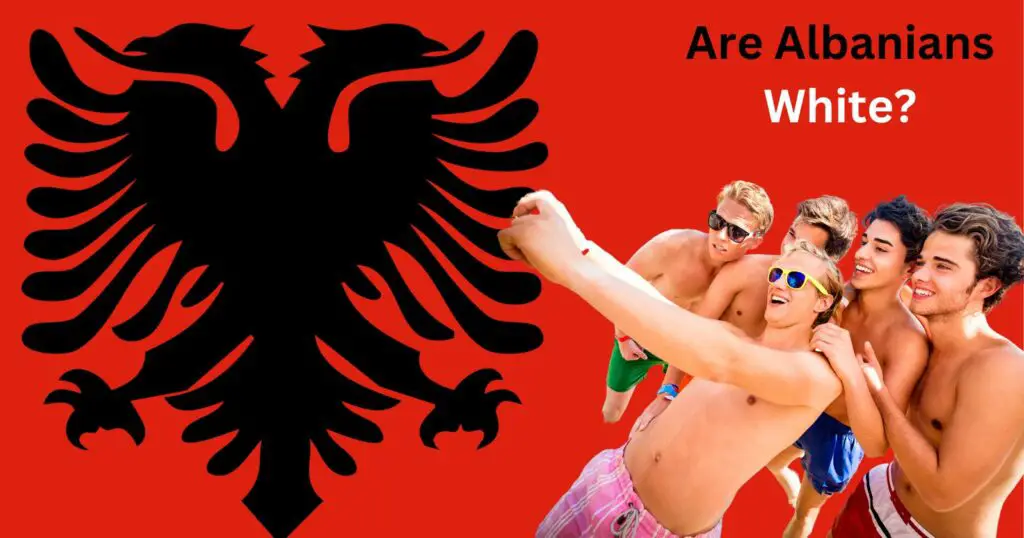Yes, a significant part of the Albanian population is white. The Albanians are one of the ancient groups of Europe and are the descendants of the Balkans.
In ancient times, Albania was inhabited by various Illyrian tribes, including the Ardiaei, Albanoi, Amantini, Enchele, Taulantii, and the Thracian and Macedonian Greek tribes. Additionally, many Greek colonies were established along the Illyrian coast.
This article is for those who have a keen interest in history and wish to learn more about the diverse racial and ethnic groups in Albania. It provides a broader perspective on the topic, as many people oversimplify the diversity of Albanians.
In this article, I have covered the various races and ethnic groups found in Albania and explored their distinctions. Besides, I have delved into the ancestral background and mentioned a few insights into the origins of Albanians.

Can Albanians Be Considered White People?
Albanians are a group from the Balkan Peninsula, part of Europe. Due to the color of their skin, they are generally considered to be white.
In the United States and many other Western countries, the term “white” refers to people of European descent. Albanians are often considered part of this group.
While Albanians have a unique cultural and linguistic identity but they share many features with other European groups. This includes their physical characteristics, such as lighter skin color and historical and cultural ties to Europe.
Are Albanians Identified As Caucasian?

Albanians are generally considered part of the Caucasian or white racial category. The Caucasian racial category encompasses people with various physical characteristics and ancestral origins.
These include those of European, Middle Eastern, and North African descent. ‘Caucasian’ originates from the Caucasus region, located between the Black Sea and the Caspian Sea, and includes parts of Europe and Asia.
These racial categories are not fixed or objective and can vary depending on cultural and historical context. Additionally, race and ethnicity are separate concepts. Albanians can identify as members of the Albanian ethnicity while identifying with different racial or ethnic groups depending on individual circumstances and cultural influences.
Talking about the ancestry of Albanians, they are believed to be descendants of the ancient Illyrians, who inhabited the western Balkans in pre-Roman times. However, there have been various other theories proposed over time.
Regarding genetic ancestry, studies have suggested that Albanians are a mixture of different populations, including those of Balkan, Mediterranean, and Central European origin. They also share genetic similarities with others in the region, including Greeks, Bulgarians, and Romanians.
What Is The Origin Of Albanians?
The origin of Albanians is a topic of ongoing debate and research. The most accepted theory is that the Albanians are descendants of the ancient Illyrian tribes who inhabited the western Balkans pre-Roman times.
Some theories suggest Albanians are the descendants of the ancient Thracians or Dacians, who lived in the same region as the Illyrians.
Another theory proposes that Albanians are descendants of the Pelasgians, who were said to have lived in the area now known as Greece and Albania.
There has yet to be a consensus among historians and anthropologists on the exact origin of Albanians, and the issue remains a subject of ongoing research and discussion.
The Albanian language, an Indo-European language, provides important clues to the history and origins of the Albanian people. Still, much more research is needed to understand their history and heritage.
What Is The Ethnicity Of Albanians?

The majority of Albanians are considered to be of Albanian ethnicity, with their distinct language, culture, and traditions.
Yet, some Albanians have assimilated into neighboring cultures and may identify as members of different ethnic groups, such as Serbs, Montenegrins, or Macedonians.
Also, Albanian communities live in other parts of the world, such as the United States, Italy, and Turkey.
Ethnicity is a complex and multifaceted concept that various factors, including ancestry, language, culture, religion, and history, can influence.
Here is a table summarizing some of the different ethnic groups of Albanians.
| Ethnic Group | Country of Origin | Approximate Population |
| Albanians | Albania | 2.8 million |
| Albanians | Kosovo | 1.8 million |
| Albanians | North Macedonia | 500,000 |
| Albanians | Montenegro | 30,000 |
| Albanians | Serbia | 70,000 |
| Arbëreshë | Italy | 100,000 |
| Cham Albanians | Greece | 100,000 |
| Arvanites | Greece | 50,000 |
| Tosks | Greece | 50,000 |
| Albanian Americans | United States | 250,000 |
| Albanians | Turkey | 1.5 million |
It’s important to note that these figures are approximate and can vary depending on the data source. The ethnic identity of an individual or group might also change over time and may be influenced by social and political contexts.
What Are The Genetics Of Albanians?
Studies of mitochondrial DNA (mtDNA), passed down from mother to child, have found that Albanians share genetic similarities with other populations in the region, including Greeks, Macedonians, and Bosnians.
These studies suggest that Albanians have a diverse genetic ancestry that reflects the region’s complex history. Studies of Y-chromosomal DNA (Y-DNA), passed down from father to son, have also found that Albanians share genetic similarities with other populations in the region, including Greeks, Slavs, and Italians.
However, Albanians also have unique genetic markers suggesting distinct genetic ancestry. Genetic studies indicate that Albanians have a complex genetic genealogy, including a mixture of Balkans, the Mediterranean, and Central Europe populations.
The genetics of Albanians is a complex and ongoing area of research that has been the subject of numerous studies in recent years. The Albanians are a genetically diverse population with complex ancestry.
Final Remarks
There was not a lot of information on the internet regarding the ethnicity and race of Albanians and if they are white. With the help of this article, I tackled that by creating a definitive guide on the subject.
Let us summarize the article so that you get everything.
Albanians are white people and can be considered to be Caucasian. According to historical accounts, Albanians are believed to be the offspring of Illyrian and Thracian tribes who established themselves in the area during antiquity.

My name is Jeyn Dashner and I am the founder of WanderFever. I have worked as a travel journalist for many years, and exploring new places is my greatest pleasure in life.
